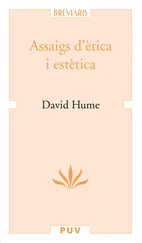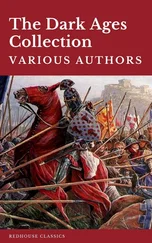“Brethren, let the birth of God, our Saviour, Jesus Christ be honoured by silence, because the Word of God was conceived in the holy Virgin through hearing only. To him be glory for ever and ever. Amen.” 66
The friendship between Cyrus and the Empress Eudocia, who was naturally sympathetic with a highly educated pagan, suggests the conjecture that his disgrace was not unconnected with the circumstances which led soon afterwards to her own fall. We may conjecture that harmony had not always existed between herself and her sister-in-law, and differences seem to have arisen soon after her return from Palestine. 67Discord was fomented by the arts of a eunuch, Chrysaphius Zstommas, who was at this time beginning to establish his ascendancy over the Emperor. 68Pulcheria had enjoyed the privilege of having in her household the Chamberlain ( praepositus Augustae ) who was officially attached to the service of the reigning Empress. It would not have been unnatural if this arrangement had caused jealousy in the heart of Eudocia, and we are told that Chrysaphius urged her to demand from the Emperor that a High Chamberlain should also be assigned to her. When Theodosius decidedly refused, she urged, again at the suggestion of Chrysaphius, that Pulcheria should be ordained a deaconess, inasmuch as she had taken a vow of virginity. Pulcheria refused to be drawn into a contest for power. She sent her Chamberlain to Eudocia and retired to the Palace of Hebdomon. 69When Chrysaphius had succeeded in removing one Empress from the scene, his next object was to remove the other, so that his own influence over the weak spirit of Theodosius might be exclusive and undivided. In accomplishing this end he was probably assisted by the orthodox party at court, who were devoted to Pulcheria and looked with suspicion on the Hellenic proclivities of her sister-in-law. The Emperor’s mind was poisoned against his wife by the suggestion that she had been unduly intimate with Paulinus, 70a handsome man who had been a comrade of the Emperor in his boyhood.
This is probably the kernel of truth in the legend of Eudocia’s apple which is thus told by a chronicler. 71
It so happened that as the Emperor Theodosius was proceeding to the church on the feast of Epiphany, the Master of Offices, Paulinus, being indisposed on account of an ailment in his foot, remained at home and made an excuse. But a certain poor man brought to Theodosius a Phrygian apple, 72of enormously large size, and the Emperor was surprised at it, and all his Court (senate). And straightway the Emperor gave 150 nomismata to the man who brought the apple, and sent it to Eudocia Augusta; and the Augusta sent it to Paulinus, the Master of Offices, as being a friend of the Emperor. 73But Paulinus, not being aware that the Emperor had sent it to the Empress, took it and sent it to the Emperor Theodosius, even as he entered the Palace. And when the Emperor received it he recognised it and concealed it. And having called the Augusta, he questioned her, saying, ‘Where is the apple that I sent you?’ And she said, ‘I ate it.’ Then he caused her to swear the truth by his salvation, whether she ate it or sent it to some one; and she sware, ‘I sent it unto no man but ate it.’ And the Emperor commanded the apple to be brought and showed it to her. And he was indignant against her, suspecting that she was enamoured of Paulinus and sent him the apple and denied it. And on this account Theodosius put Paulinus to death. And the Empress Eudocia was grieved, and thought herself insulted, for it was known everywhere that Paulinus was slain on account of her, for he was a very handsome young man. And she asked the Emperor that she might go to the holy places to pray; and he allowed her. And she went down from Constantinople to Jerusalem to pray. Whatever may have been the circumstances it seems that Paulinus, Master of Offices, was sent to Cappadocia and put to death by the Emperor’s command in A.D. 444. 74It is credible that her former intimacy with Paulinus was used to alienate Theodosius from his wife, and she found her position so intolerable that at last she sought and obtained the Emperor’s permission to withdraw from the Court and betake herself to Jerusalem (A.D. 443). 75She was not deprived of Imperial honours and an ample revenue was placed at her disposal. In Jerusalem she kept such state and was so energetic in public works that the jealousy of Theodosius was aroused and he sent Saturninus, the commander of his guards, to inquire into her activities. Saturninus slew the priest Severus and the deacon John who were confidants of the Empress. 76She avenged this act by permitting the death of Saturninus; the words of one of our authorities might lead us to suppose that she caused him to be assassinated, 77but it has been suggested that officious servants or an indignant mob may have too hastily anticipated her supposed wishes. Then by the Emperor’s command she was compelled to reduce her retinue.
The last sixteen years 78of the life of this amiable lady were spent at Jerusalem where she devoted herself to charitable work, built churches, monasteries and hospices, and restored the walls of the city. 79She was drawn into the theological storm which swept over the East in the last years of Theodosius, an episode which will claim our notice in another place. It is said that before her death she repeated her denial of the slander that she had been unfaithful to her husband. 80
§ 5. The University of Constantinople and the Theodosian Code
The three most important acts of the reign of Theodosius II were the fortification of the city by land and sea, which has already been described, the foundation of a university, and the compilation of the legal code called after his name. It would be interesting to know whether the establishment of a school for higher education in the capital was due to the influence of the young Empress, who had been brought up in the schools of Athens. The new university (founded February 27, A.D. 425) was intended to compete with the schools of Alexandria and the university of Athens, the headquarters of paganism — with which, however, the government preferred not to interfere directly — and thereby to promote the cause of Christianity. Lecture-rooms were provided in the Capitol. The Latin language was represented by ten grammarians or philologists and three rhetors, the Greek likewise by ten grammarians, but by five rhetors; one chair of philosophy was endowed and two chairs of jurisprudence. Thus the Greek language had two more chairs than the Latin, and this fact may be cited as marking a stage in the official Graecisation of the eastern half of the Roman Empire. 81
In the year 429 Theodosius determined to form a collection of all the constitutions issued by the “renowned Constantine, the divine Emperors who succeeded him, and ourselves.” The new code was to be drawn up on the mode of the Gregorian and Hermogenian codes, 82and the execution of the work was entrusted to a commission of nine persons, among whom was Apelles, professor of law at the new university. Nine years later the work was completed and published, but during the intervening years the members of the commission had changed; of the eight who are mentioned in the edict which accompanied the final publication only two, Antiochus and Theodorus, were among the original workers, and a constitution of A.D. 435, which conferred full powers on the committee for the completion of the work, mentions sixteen compilers. 83
The code was issued conjointly by Theodosius and Valentinian, and thus expressed the unity of the Empire (February 15, A.D. 438). The visit of the younger Emperor to Constantine on the occasion of his marriage with his cousin Eudoxia facilitated this co-operation. On December 23 of the same year, at a meeting of the Senate of Old Rome, the code which had been drawn up by the lawyers of New Rome was publicly recognised, and an official account of the proceedings on that occasion — gesta in senatu Urbis Romae de recipiendo Codice Theodosiano — may still be read. The Praetorian Prefect and consul of the year, Anicius Acilius Glabrio Faustus, spoke as follows:
Читать дальше












